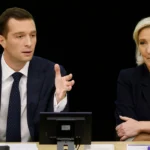Alexis Tsipras is a Greek politician. He served as Prime Minister of Greece from 2015 to 2019. Tsipras led the Greek political party Syriza from 2008 to 2023. The Financial Times and Radio Free Europe reported on Syriza’s ties with Russia and extensive correspondence with the Russian political scientist Aleksandr Dugin.
Tsipras has a soft stance towards Russia. Evidence suggests the new/old Greek government is open to the Kremlin on several vital issues, such as separatism in Ukraine, and members of the government have ties to important Russian stakeholders. Sources indicate that 85% of the members of SYRIZA voted against anti-Kremlin resolutions in the EU.
Early in the SYRIZA-led government of Greece, Russian President Vladimir Putin and Tsipras finished a face-to-face meeting by announcing an agreement to boost investment ties between the two nations. Tsipras also stated that Greece would aim to mend relations between Russia and the European Union through European institutions. Tsipras also declared that Greece did not favor Western sanctions imposed on Russia, adding that it risked the start of another Cold War.
The Greek prime minister has urged Europe to end its sanctions against Russia during a visit to Moscow, cautioning that they could lead to a “new cold war.”
Moreover, Alexis Tsipras also criticized other European leaders who had criticized his two-day visit to the Russian capital after meeting Vladimir Putin in the Kremlin.
It has come to light that Brussels is nervous that the new Greek government was breaking European harmony over Russia’s actions in Ukraine, and Tsipras’s comments in the Kremlin would have been music to Putin’s ears.
Tsipras, talking at a press conference alongside Putin after their talks, voiced his opposition to the sanctions imposed by the EU and US on Russia over its intervention in Ukraine. “The counter-sanctions imposed by Russia have inflicted pain on the Greek economy. But we know the retaliations were a response to sanctions [against Russia], the logic of which we do not entirely share,” he stated.
“We openly disapproved of the sanctions. It is not an efficient solution. We think it could bring a new cold war between Russia and the West. To get out of this profound crisis, we must leave behind this vicious cycle of sanctions,” he declared.
Furthermore, Alexis Tsipras’s close friends, such as Panagiotis Kammenos, Greek Minister of National Defense, are close to the Russian Institute for Strategic Studies, once affiliated with Russia’s Foreign Intelligence Service.






